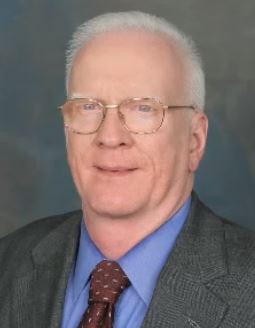By January 31st, 2023 Environment, Property, Regulation|154 Comments @ CFACT
The Biden administration’s effort to “clarify” federal jurisdiction over certain bodies of water under the Clean Water Act (CWA) is headed to court.
At stake is an issue that has been around since enactment of the CWA in 1972: Over which “waters of the United States” (WOTUS) does the CWA’s regulation of discharges pertain? The statute makes specific reference to “navigable waters of the United States” – generally understood to mean rivers, bays, streams, etc. – but says little, if anything, about other bodies of water. Over time, regulators at the Environmental Protection Agency (EPA) and the U.S. Army Corps of Engineers, which share jurisdiction over the CWA, have — without congressional authorization — gradually expanded their writ to include water bodies that clearly are not navigable.
What was originally supposed to be a water-quality statute has been twisted by bureaucratic fiat into a federal land-use mechanism, igniting a slew of lawsuits over the decades. Two Supreme rules from the early 2000s failed to provide the needed jurisdictional clarity. The Obama administration, under the guise of “clarifying” the matter, issued a WOTUS rule that was little more than federal zoning of millions of acres of private land. Federal courts struck down two sections of the Obama scheme, and the Trump administration replaced it with a rule that limited the scope of Washington’s jurisdiction, and provided some protection for landowners. This was anathema to Biden administration officials, who scrapped the Trump plan, and have now issued a federal zoning scheme of their own.
Now that the Biden rule has been finalized, parties whose livelihoods are at risk from this latest regulatory overreach are taking EPA and the Corps to court.
Giving the Federal Government “Sweeping Authority over Private Lands”
“Farmers and ranchers share the goal of protecting the resources we’re entrusted with. Clean water is important to all of us,” said Zippy Duvall, president of the American Farm Bureau, in a Jan. 19 statement. “Unfortunately, the new WOTUS rule gives the federal government sweeping authority over private lands. This isn’t what clean water regulations were intended to do. Farmers and ranchers should not have to hire a team of lawyers and consultants to determine how we can farm our land.”
“The new rule is vague and creates uncertainty for American farmers, even if they are miles from the nearest navigable water,” Duvall continued. “We believe a judge will recognize these regulations exceed the scope of the Clean Water Act, and direct EPA to develop rules that enable farmers to protect natural resources while ensuring they will continue stocking American pantries.”
Joining the American Farm Bureau in the lawsuit are 17 other organizations representing agriculture, home builders, construction infrastructure companies, as well as state and county farm bureaus.
Filed Jan. 18 in the U.S. District Court for the Southern District of Texas, Galveston Division, the lawsuit charges the Biden EPA with overstepping its authority under the CWA.
“Staggering Range of Dry Land and Water Features”
“Instead of providing much-needed clarity to the regulated community, however, all the Rule makes clear that the Agencies [EPA and the Corps] are determined to exert CWA jurisdiction over a staggering range of dry land and water features – whether large or small; permanent, intermittent, or ephemeral; flowing or stagnant; natural or manmade; interstate or intrastate; and no matter how remote or lacking a physical connection to actual navigable waters,” the suit states. “Under the Rule, Plaintiffs’ members will constantly be at risk that any sometimes-wet feature on their property will be deemed WOTUS by the Agencies using vague and unpredictable standards – making normal business activities in that area subject to civil and criminal penalties.”
The suit argues that the Biden WOTUS rule should be held unlawful under the Administrative Procedures Act, “because the Rule adopts an unworkable definition of WOTUS that conflicts with the CWA, the Constitution, and Supreme Court precedent.”
Along with the American Farm Bureau, the 17 other plaintiffs include:
- American Petroleum Institute,
- American Road And Transportation Builders
- Association, Associated General
- Contractors Of America,
- Leading Builders Of America,
- Matagorda County Farm Bureau,
- National Association Of Home Builders
- National Association Of Realtors
- National Cattlemen’s Beef Association
- National Corn Growers Association,
- National Mining Association,
- National Multifamily Housing Council
- National Pork Producers Council
- National Stone, Sand, And Gravel Association
- Public Lands Council,
- Texas Farm Bureau,
- U.S. Poultry And Egg Association

No comments:
Post a Comment